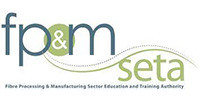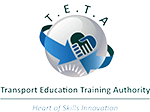Approximately 1 in 10 people may have an epileptic episode during their lifespan. An epileptic seizure is quite a common occurance and consequently, you might find yourself having to help someone through a seizure. The responsibilities of that role may feel rather daunting, and thus it would be beneficial for you to have some first aid training to keep a person safe during a seizure. First aid training for seizures aims to not only protect the individual from harming themselves during these episodes but also to improve the lack of knowledge we have regarding seizures in general. Read this short guide for an introduction to first aid training for individuals that struggle with seizures as well as how you can help.
Types of Seizures and Degree of Danger:
Some seizures are more dangerous than others. There are two main types of seizures which include generalized seizures and focal onset seizures. Generalized seizures involve multiple parts of the brain at once and the people suffering these seizures are often unaware of what is happening to them. Generalized seizures can be frightening for someone who doesn’t know what is happening, but someone with first aid training for seizures can be prepared, calm, and ready to take the necessary steps to assist.
The second type of seizure is focal onset seizures which, unlike generalized seizures, happen in a single part of the brain. This can be seen by an arm moving or the muscle in the person’s face twitching. Even though the person is awake and aware of what is happening, they have no control over the situation. The person might seem to stare blankly and zone out as the seizure escalates. In some situations, the person has no recollection of what happened. Once again, if you have some first aid training in seizures you will be able to spot what is happening and evaluate the situation with ease.
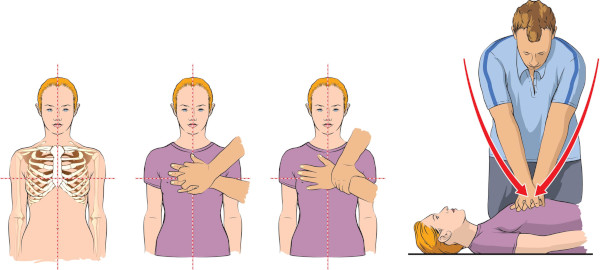
Some general steps that could help someone that is having a seizure:
- You should stay with the person until the seizure has ended and he/she is fully awake. After the seizure has happened, help the person sit down in a safe space. When the person is comfortable and able to communicate, you should tell them what has happened in the simplest terms. This is also very important if this is their first time experiencing a seizure.
- If the person that has experienced the seizure is not a friend or family member, you should check their wrist to see if they are wearing a medical bracelet. This could be beneficial because an emergency bracelet will have all their emergency information on it.
- If you have some first aid training experience, you will be able to keep yourself and others around you calm by explaining what has happened.
- Having a seizure is an uncomfortable experience even if someone does endure it daily. It’s a good idea to comfort the seizure victim and speak in a calm tone.
- You can offer the person a taxi service or even contact someone to make sure the person gets home safely.
Things you shouldn’t do when someone is having a seizure:
The following things are important to avoid while someone is having a seizure. Firstly, when someone is having a seizure, you should not attempt to hold the person down to stop them from performing certain movements. Avoid attempting mouth-to-mouth breathing like CPR, as the person will eventually breathe normally after their seizure has passed.
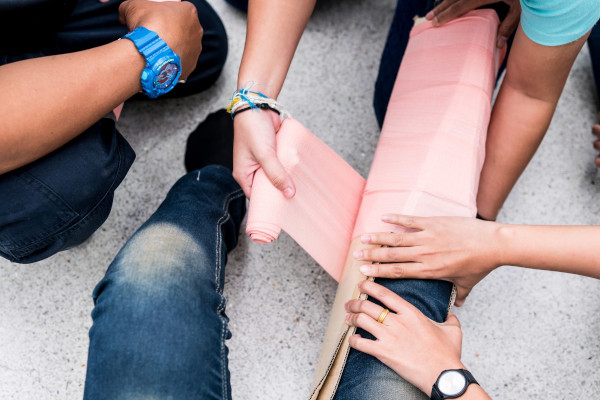
Do not put anything in the seizure victims mouth as they can injure their jaw or teeth. An infamous myth regarding seizures dictates that you can swallow your tongue. However, according to extensive research this isn’t true at all. Lastly, you shouldn’t offer the person water or food unless you are sure he/she is fully awake and alert. When receiving training for seizures you will discuss these topics in much more detail and will learn to identify the signs of full consciousness.
What causes seizures to happen?
Seizures don’t have an identified cause in half of the population that experience it on a daily basis. The other half, however, have been assigned some causes for their episodes. Experiencing head trauma from a car accident or other collisions can cause seizures to occur. Genetics plays a role in the development of seizures as well. Infections can also contribute to seizures. If someone has had a parasitic infection it could most likely cause seizures to occur.
Sometimes seizures are caused by developmental disorders such as autism. Parental injuries are also evident in the development of seizures. If the mother experiences poor nutrition, infection, or oxygen deficiencies during pregnancy, the baby might be affected. Infant brains are sensitive and these damages to the mother could cause seizures to occur in the child. Lastly, abnormalities in the brain like brain tumors can also cause someone to have seizures.
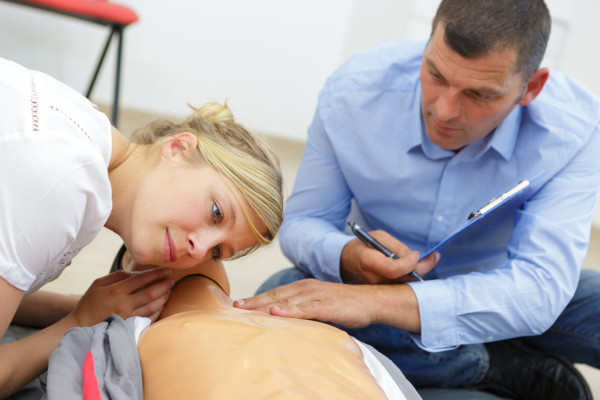
When should you see a doctor regarding a seizure?
You should seek medical assistance when any of the following signs occur in the seizure victim. You should alert the medical services if the person doesn’t regain consciousness and their breathing is abnormal. If a second seizure immediatly follows the first one, there is cause to be alarmed. If they have a high fever, are diabetic or pregnant and experiencing a seizure, you should also get medical help.
A seizure shouldn’t last more than five minutes. Any longer than that and it becomes dangerous. In some cases, you can get injured while experiencing a seizure and therefore you should seek some medical attention. It’s important to note that someone can still experience seizures even though they are on anti-seizure medications. The medication helps regulate seizures but cannot prevent them entirely.
We hope that this article has helped you understand the importance of first aid training for seizures as well as assisted in educating you on the most important aspects of handling these seizures. Sign up today for first aid training at EMCARE and help make a positive change.







